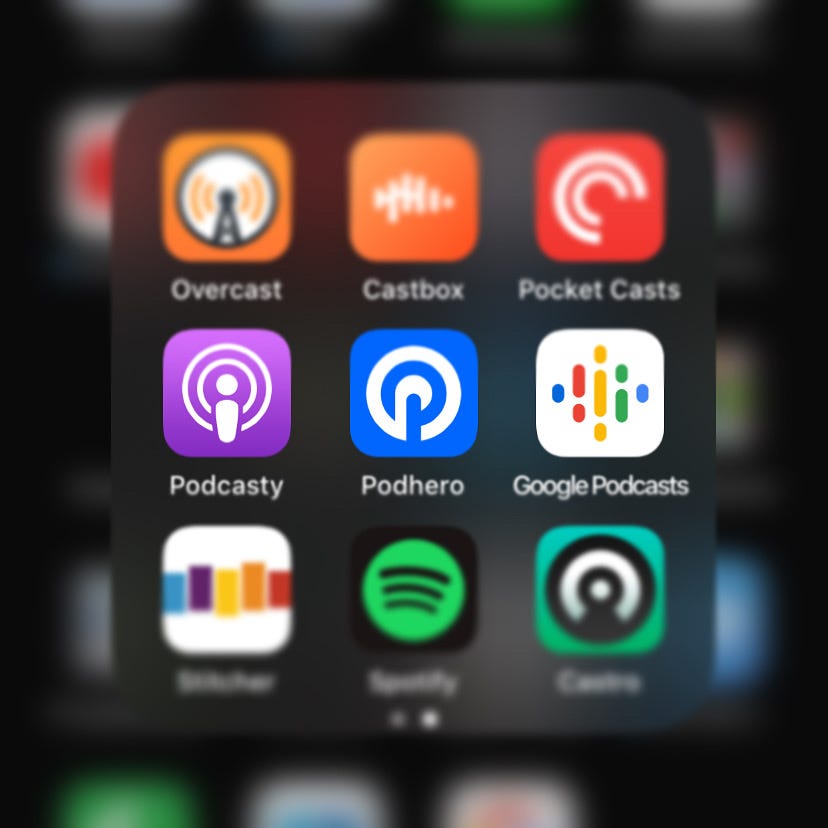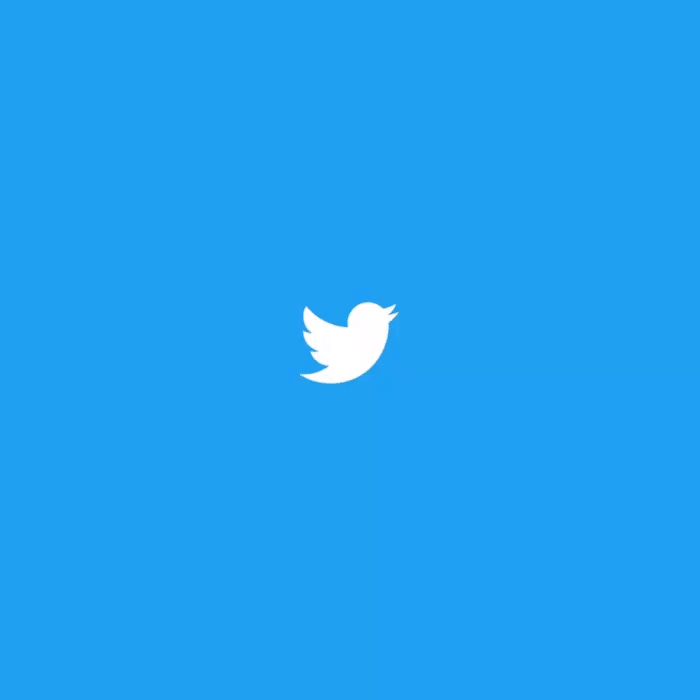Podhero is doing what Apple and Google should have done a long time ago
Podcasts could be the perfect little marketplaces within both Apple and Google.
Welcome to the FWIW newsletter about tech, media & audio written by David Tvrdon. 🌐 Read it online and 👉 be sure to subscribe, if you were forwarded this newsletter.
In this edition
🦸 What is Podhero trying to do for podcasting
🍐 Seven lessons from Quartz’s decline
📊 That Reuters study everyone has been Tweeting about this week
💬 Other tech & media news (including the Apple-Hey feud)

Hey Apple & Google, why not turn podcasts into a marketplace as well

📸 by davidtvrdon
Podhero wants to be Patreon for podcasters. The business model: You pay $5.99 a month to use the app, and the company distributes that money (minus $1/m for overhead) to the shows you listen to.
Sounds great, if you are a podcaster, and if you are a listener it is also great because you can easily support your favorite podcast.
I admire this idea because it is quite simple, though I wonder whether this is the answer for smaller and medium-sized podcasts. Will they get a cut big enough? Will there be enough users on Podhero?
The whole idea is based around building momentum and telling podcast audiences they should be using Podhero to support you. The more listeners you get to use Podhero, the more you will earn, is the idea.
Now let’s consider Apple and Google doing the same thing within their podcast apps. Google podcasts even launched with a promise of a donate button, though I haven’t heard almost anything about it since then.
Both Apple and Google know their users and have their credit cards in many many cases. Both companies are obsessed with building marketplaces within (App Store/Play Store, selling movies online, books online, music subscriptions service…).
Podcasts are not a multi-billion dollar business yet, but they could be. Listener loyalty is high and they are willing to open up their wallets to support their favorite shows.
Now if you are Apple and Google, you love to build marketplaces from scratch have users’ payment information, why not build a simple donate option or subscription service around podcasts (and take a fee obviously)?
I have come back to this idea for a lost opportunity for both Apple and Google again and again. This time is was Podhero that reminded me how little is needed.
And it would be a win-win situation - podcasters would send their listeners towards Apple and Google, and told them to spend money on their platforms. They would grow their dominance within podcasts (ok, there is another debate around this let’s leave it for some other time), get new customers, and money would follow.
Podhero is a good idea but for it to work it would have to become part of either Apple or Google. And that would be a great thing for many podcasters.

Seven lessons on the digital media publishing
On LinkedIn (yes, I have an active profile there) I have shared this reporting by Digiday on Quartz with this somewhat crude title: Caught in the mushy middle: How Quartz fell to earth.
The whole piece feels like a post-mortem to a still breathing Quartz and actually contains a lot of media lessons:
1) The scale above profitability is the thing of past (was it ever a good thing?), the CPM trend has been very clear 📉
I remember hearing on a podcast Quartz executives talking about their ads and how much higher CPM they are charging and so on. Well, someone forgot to diversify.
2) Beware of social tech giants (yeah, looking at you FB) who are your friends delivering lots of traffic and video views one day and changing that the other day leaving you empty-handed 🤲
Quartz had huge traffic from Facebook which suddenly dropped after a change in the algorithm.
3) Think SEO before social 🔍
Creating evergreen content makes more sense and optimizing for search (Google) seems to be a winning strategy among many publishers.
4) Pivot to video, not 🤦♂️
I am not sure I know of any publisher that started a video venture within the newsroom and became very successful (maybe Vox Media, but they are the only ones and not doing terribly well during the pandemic).
5) Find your niche 🤟
Not quite niche enough to be essential to a small group of readers, but not quite big enough to compete at scale.
6) The business model change will never work without a shift in employee's thinking about it 🤔
The report says journalists were used to getting huge traffic for their stories and struggled with paywalling the content. It’s the worst-case scenario when you are trying to set up a subscription revenue.
7) Once you abandon your origins (in Quartz's case - innovation, a different take on stories everyone is covering, data-savvy reporting...), the road ahead is treacherous 🚧
Quartz is still considered an innovative media company though in recent years (after being bought by Uzabase from Japan) it has struggled and recently let go couple dozen staff members.

Digital News Report 2020 is out
With more than 100 pages it has become one of the most anticipated reports covering journalism across 40 countries around the world (🇸🇰 Slovakia included). If not the whole thing, read at least the executive summary. [DNR 2020]
Main takeaways (quotes from the study):
The use of online and social media substantially increased in most countries. WhatsApp saw the biggest growth in general. Across age groups, the use of Instagram for news has doubled since 2018 and looks likely to overtake Twitter over the next year.
Global concerns about misinformation remain high. Even before the coronavirus crisis hit, more than half of our global sample said they were concerned about what is true or false on the internet when it comes to news.
The majority (60%) still prefer news that has no particular point of view and that only a minority (28%) prefer news that shares or reinforces their views.
Significant increases in payment for online news in a number of countries including the United States 20% (+4) and Norway 42% (+8), with smaller rises in a range of other markets. (the most important factor for those who subscribe is the distinctiveness and quality of the content)
The proportion using podcasts has grown significantly in the last year, though coronavirus lockdowns may have temporarily reversed this trend. Across countries, half of all respondents (50%) say that podcasts provide more depth and understanding than other types of media.
Almost seven in ten (69%) think climate change is a serious problem.
Voice-activated smart speakers like the Amazon Echo and Google Home continue to grow rapidly. Usage for any purpose has risen from 14% to 19% in the UK, from 7% to 12% in Germany, and 9% to 13% in South Korea.
Some charts
The proportion that paid for any online news in last year (2014–20)

The proportion that used a podcast in the last month by age

Find the study here free to download.

In other news
TECHNOLOGY
👊 The Apple-Hey feud. Hey is the new email service from the founders of Basecamp. Hey wants to take on Gmail and Outlook and bless them for that, there hasn’t been an innovation in email like forever. Hey is in open beta (you can join the waiting list here) and so is their app in App Store. When the company wanted to update the app before launch, Apple decided it is against the rules to not include the in-app purchases. The creators said they are not willing to pay the tech giant 30% cut and they have taken to media and Twitter. Interestingly, Apple has no such problem with Basecamp. Anyway, it is too complicated to explain in detail but even Apple evangelists think the company is slipping in its reasoning. Meanwhile, Apple Pay and iOS App Store are under formal antitrust probes in Europe and this very public feud will not help the company. I think Apple is overstepping here and this is not helping anyone. [The Verge]
💌 Newsletters are sexy again. Substack’s co-founder & Chris Best talked about the platform (which I am using for this newsletter), how they built it from one user up and how the coronavirus pandemic actually brought more writers and readers. [Protocol]


JOURNALISM
⚠️ Great report: What We Learned About Editors vs. Algorithms from 4,000 Stories in Apple News? [Medium]
Human Editors Chose Sources More Evenly
Human Editors Chose More Diverse Sources
Human Editors Chose Less “Soft News”

AUDIO
⏩ Audio Twitter, here we go! Twitter is rolling out audio Tweets (iOS so far), you can now record and Tweet with audio. My thoughts: Automated transcription should have been included in the launch. I love that voice is becoming “a player” in the digital content realm, I just would like to see a better-thought-out strategy. The product managers responsible for the feature say they have worked on this for a year. Nonetheless, it’s great to see audio becoming a first-class citizen also on social [Twitter blog]


🎧 Another podcast about podcasting? Not this case. I have been looking forward to this launch for a while and it finally happened. The first two episodes of the Servant of Pod podcast with Nick Quah dropped and it’s great. This podcast aims to unpack also the business of podcasting, so it’s not just people talking about how to make a podcast. [Hot Pod News]
🎙️ Kim Kardashian West will produce an exclusive podcast for Spotify. Her show would explore the celebrity’s work with the Innocence Project, exploring topics that have come to the forefront of the national conversation in recent weeks. The show will highlight the work of the nonprofit legal organization that seeks to exonerate people who have been wrongly convicted. [Wall Street Journal]
✊ Podcasts & email newsletters FTW. Reuters researcher Nick Newman writes that podcasts and newsletters are likely to become even more important as part of the drive toward habitual digital use. In other words, if you are a publisher or a content creator, you better have a strategy for both. [NiemanLab]
Podcasts are interesting for publishers because they are much more likely to attract younger audiences, since they can be accessed conveniently through smartphones and they offer a diversity of perspectives and voices.
The deep connection that many podcasts seem to create could be opening up opportunities for paid podcasts, alongside public-service and advertising-driven models. In our data this year we find that almost four in ten Australians (39%) said they would be prepared to pay for podcasts they liked, 38% in the United States, and a similar number in Canada (37%).
🎥 Add video to your audio, says Zencastr. The online platform for remote online interview recordings used by many podcasters (especially during the global pandemic) is testing a video recording feature. At the moment it is available as a limited, free beta, as the startup seeks to do more widespread testing. You can join the waiting list on their site. [TechCrunch]
OTHER NEWS
✊🏿 ✊🏽 ✊🏾 Dave Chappelle's surprise Netflix special 8:46 explodes on YouTube. And for a good reason, go and watch it. [CNET]
Catch me on Twitter or LinkedIn. Was this forwarded to you? Subscribe over here👈



